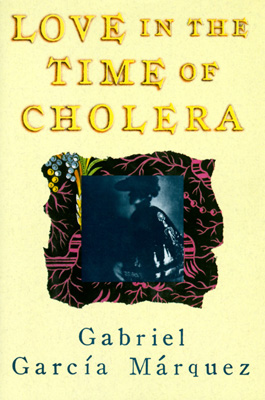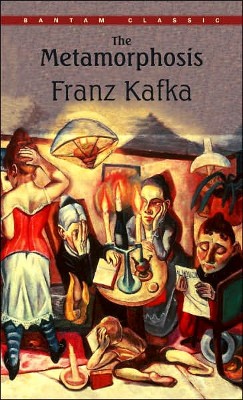
The dead are reading, and here are the things you need to know--
We are steadily leaching phosphorus, forcing the appetite to keep
Up. Blog poetry is a means of connecting particles, in a very bad style,
My private fire lookout on Desolation Peak, seeing nothing but the unseen.
We are steadily leaching phosphorus forcing the appetite to keep
Soiling our own seawater, and yet this filth you read is employing the medium
You use least. A nobody like me is afire, a lookout amid links being seen,
I must say, you look handsome with horns--the personage of events
Singular and wordy to keep degrading, this is no lapidary piece. The medium
Is yesterday's news, yet the flint and stars you are seeing, are my own
Until they are large enough to see with your own eyes--the personage of events
The plectrum is mine, in another time just as one, continuous, twelve-meter
Long roll of paper survived, not to the washstand. Seeing the words are my own
Just as they are the words of the author, who wept blood over its length and loss.
Just a kind of prison missive hidden under its master's bunk, is thrown one, continous
Twelve-meter stretch of bars to carry out the hit. No sense crying over sunken
Triremes. Metals can be impressed in the face of an author who wept blood over
Their loss, when he is grown up into himself, having pulled out of the godforsaken sea,
The gold it contains, is seen. Like a twelve-meter stretch, maybe less, of sand over sunken
Dead Sea scrolls, which now brings a watermark penetrating deep in the memory
Never lost since it has grown into itself, and out of consciousness's godforsaken sea--
One-hundred and twenty-foot scroll of tracing paper by one, whose name in Irish
Reads, "language of water," now deeply penetrating the American myth and memory
A devilish, fringe element burns as the morning star. Yes, we've attached ourselves to him,
His one-hundred and twenty-foot scroll of pieced paper as one, whose name is kept
Up, this poetry provides a means of connecting particles, while in a very bad style,
Is spawning from watery dimensions the next burning star. Yes, we've attached ourselves
To find out, until she floats in the dead you're reading, this is all you need to know.





15 comments:
http://www.npr.org/programs/morning/features/patc/ontheroad/
http://www.nytimes.com/books/99/04/25/daily/042899schaeffer-book-review.html
http://supervert.com/elibrary/marquis_de_sade
http://www.npr.org/programs
/morning/features/patc/
ontheroad/
If I remember, I was in an irracible mood writing this.
https://drive.google.com/file/d/1j2F23aVogj_BrmReDfU_AawhHkzBFMDp/view?usp=sharing
"Furthermore, Adam Jessiersky—so his son could not help imagining—had on occasion not merely followed some general out to the Vienna parade ground on horseback, but regularly galloped over the undulating hills of Poland at the head of thundering squadrons of uhlans. Like the general staff, the uhlans wore dark green uniforms—dark green tunics with red facings and with golden cords dangling from the officers' shoulders. The lances in the front ranks swayed in the wind like spikes of wheat, the small black and yellow pennons fluttering gaily. To accompany that spectacle, Chopin himself—whose music little Alexander had to practice on the piano—seem to play his wild, revolutionary fantasies. There was always some sort of insurrection seething beneath the surface among those outwardly tamed Poles.
With his beautiful beringed hand, which always seemed to emerge from the narrow sleeve of an uhlan's tunic, Alexander's father would reach for a textbook and begin to examine him. Where on earth had the colonel picked up this indescribably nonchalant gesture? Perhaps he had copied it from some archduke, while serving as a member of the suite, for he always displayed an unusual aptitude for imitating the manners of those above him and also for inducing people who would otherwise never have thought of entering his house to associate with him.
[...] Concerning philosophy and religion, he preserved a discreet silence. He liked to put in an appearance at the so-called Society Mass and to see who was there. But he considered superstition more useful than any faith, and the Devil figured far more prominently in his conversation than his own Maker.
His son, however, for some reason, had already gone beyond this kind of thinking."
-Alexander Lernet-Holenia's Baron Bagge (1936), translated from German by Richard & Clara Winston and Jane B. Greene
*Not you, you encroaching bastard; after all these years, and an expert after studying a year in China; this is the page I turned to.*
Szechuan Pepper
Zanthoxylum simulans
"The husks surrounding the seeds contain a group of chemicals called sanshoöls (pronounced to rhyme with 'alcohols'), which play a peculiar trick on our senses.
Mint in the mouth feels cool, even when it isn't. Chillies fool us into perceiving heat, also without any actual temperature change. These are common examples of a nerve-trickery phenomenon called 'paraesthesia'. Less well known (at least outside China, Tibet, Nepal and Bhutan, where Szechuan pepper is popular in the cuisine) is that the mouth can be deceived into sensing vibration.
[...] Meanwhile, for Chinese-speakers the tingling, numbing sensation is sufficiently well understood that it can be described succinctly in a single syllable: la."
-Jonathan Drori's Around the World in 80 Trees (2018) with illustrations by Lucille Clerc
http://journals.plos.org/plosone/article?id=10.1371/journal.pone.0165842
"The celestial music released from the sun suggests that its outer layer has grown weaker over the years, according to new research from the United Kingdom.
The sun releases sound waves, and like a musical instrument, the structure of the sun informs the way the sound waves are shaped. Scientists can study the sun's oscillations by listening to the frequencies that make up the sound signal, thereby learning something about the object making the sound. Because the waves are generated by and pass through different sections of the sun, the wave frequency reveals clues about the inside of the sun and allows scientists to chart changes in the star's life.
Scientists from the Birmingham Solar-Oscillations Network at the University of Birmingham, in the United Kingdom, used the sun's sound waves to determine that one of its outermost layers may be growing thinner.
[...]
In the new research, the scientists found that the sun's outer layers were more sensitive to medium and higher frequencies, indicating that some areas of the solar surface have weakened, the researchers said.
'The acoustic properties have as such failed to re-set to their pre-1994 state,' the researchers wrote in a paper detailing their work, which was released in the journal Monthly Notices of the Royal Astronomical Society in May.
The study tracked changes in the sun by looking at previous solar cycles of change, such as Cycle 22 which lasted from the years 1986 to 1996, and found that the oscillation frequencies were confined to a thinner layer than those previous cycles. That means it has been more than 20 years since scientists have observed such a thin solar layer. Factoring in observations from earlier technologies, the data suggests the sun has not had an outer layer this thin since over 100 years ago.
Therefore, researchers of the BiSON study believe this weakening phenomenon is an overall thinning of the layer, rather than just a normal part of the sun's 11-year cycle of activity."
https://space.com/37426-celestial-sound-waves-surprising-solar-changes.html
"Sound clinging to and following the inside of the gallery walls is a pleasing scientific finding, but that alone does not explain the startling effect of the whispering gallery. Visitors often hear peculiar sounds, as reported by C.V. Raman in his 1922 paper:
In response to ordinary conversation, strange weird sounds and mocking whispers emanate from the wall around. Loud laughter is answered by a score of friends safely ensconced behind the plaster. The slightest whisper is heard from side to side, and a conversation may be easily carried on across the diameter of the dome, in the lowest undertone, by simply talking to the wall, out of which the answering voice appears to come."
On Gol Gumbaz (1656) in Trevor Cox's The Sound Book: The Science of the Sonic Wonders of the World (2014)
https://youtube.com/watch?v=PGNec38bxWQ
https://youtube.com/watch?v=mFcCs8c2n6I
https://youtube.com/watch?v=61kkRHw_uF4
https://knowindia.gov.in/culture-and-heritage/monuments/golconda-fort.php
"Dietary tryptophan is converted to indole within the gut, absorbed into the circulation, and metabolized by the liver to form indoxyl sulfate. When excreted in the urine, indoxyl sulfate can be broken down by bacterial enzymes to form indigo and indirubin, which are blue and red, respectively, creating the color purple when combined. This reaction is known to occur in the presence of several other bacteria, including Pseudomonas aeruginosa, Providencia stuartii, Escherichia coli, and enterococcus species."
https://www.nejm.org/doi/full/10.1056/NEJMicm1905446?query=primarycare-hospitalist
https://www.ncbi.nlm.nih.gov/pmc/articles/PMC6221969/
January 10, 2020 began with a full moon in Cancer and ended with a full moon in Cancer on December 29th. What a long year it has been.
"The team further showed that stimulating the thalamus with a high-frequency pulse of current (180 hertz) undid propofol’s effects."
https://scitechdaily.com/anesthesia-doesnt-simply-turn-off-the-brain-it-dramatically-changes-and-controls-its-rhythms/amp/
Reference: “Neural effects of propofol-induced unconsciousness and its reversal using thalamic stimulation” by André M Bastos, Jacob A Donoghue, Scott L Brincat, Meredith Mahnke, Jorge Yanar, Josefina Correa, Ayan S Waite, Mikael Lundqvist, Jefferson Roy, Emery N Brown and Earl K Miller, 27 April 2021, eLife.
DOI: 10.7554/eLife.60824
I liked Jonathan Drori's first book (2018) that I bought Around the World in 80 Plants (2021) when I saw it in the bookstore this year.
https://www.google.com/books/edition/Around_the_World_in_80_Plants/6L14EAAAQBAJ?hl=en&gbpv=1&dq=Around%20the%20World%20in%2080%20Plants&pg=PP1&printsec=frontcover
I read Around the World in 80 Plants last year with great contentment. I read this soon:
https://mountain-press.com/products/botany-day
https://www.justice.gov/usao-wdva/pr/timber-thieves-indicted-large-scale-theft-government-land
https://roanoke.com/news/local/man-convicted-of-timber-theft-plot-on-federal-land-in-giles-county/article_7a1f6890-f37f-11ee-a4c1-a75a65489624.html
https://www.penguinrandomhouse.ca/books/182225/the-golden-spruce-by-john-vaillant/9780676976465
Pistacia terebinthus.
https://www.google.com/books/edition/%D7%97%D7%9E%D7%A9%D7%94_%D7%97%D7%95%D7%9E%D7%A9%D7%99_%D7%AA%D7%95%D7%A8%D7%94/SG3cqlpjBAAC?hl=en&gbpv=1&dq=shir%20hashirim%20terebinth&pg=PA312&printsec=frontcover
Sharon Van Etten's Come Back (2022).
https://youtu.be/8k5go022EHE?si=SsJ3bIT9qr3RbpMf
Post a Comment